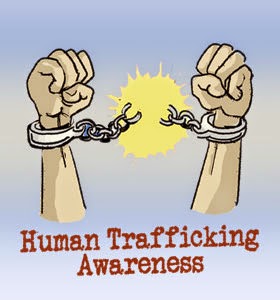January 11th marks National Human Trafficking Awareness Day, a campaign to draw attention to the roughly 20.9 million individuals trafficked into sexual slavery or forced labor worldwide. The day exists as part of National Slavery and Human Trafficking Prevention Month, as declared by President Obama in 2013.
Human trafficking remains the world's fastest growing crime and increased awareness attached to concentrated action, may mitigate the spread of the institution. Yet, sexual slavery, forced labor, and global trafficking are often tied to larger structural inequities, like poverty and gender discrimination. Given the many factors that surround human trafficking, how does awareness move into action?
Modern slavery is often difficult for individuals in developed countries to understand as it runs against traditional notions of slavery that tie the institution to the 19th century and American Civil War period. How can Americans work in solidarity with individuals in developing countries to eliminate human trafficking?
Welcome to the conversation!
Welcome to the conversation!
The Stowe Center is a 21st-century museum and program center using Stowe's story to inspire social justice and positive change.
The Salons at Stowe programs are a forum to connect the challenging issues (race, gender and class) that impelled Stowe to write and act with the contemporary face of those same issues. The Salon format is based on a robust level of audience participation, with the explicit goal of promoting civic engagement. Recent topics included: Teaching Acceptance; Is Prison the New Slavery; Traces of the Trade: A Story from the Deep North; Creativity and Change; Race, Gender and Politics Today; How to be an Advocate
This blog will expand the reach of these community conversations to the online audience. Add your posts and comments to keep the conversation going! Commit to action by clicking HERE to stay up to date on Salon and social justice news.
For updates on Stowe Center programs and events, sign up for our enews at http://harrietbeecherstowe.org/email.
Subscribe to:
Post Comments (Atom)


No comments:
Post a Comment